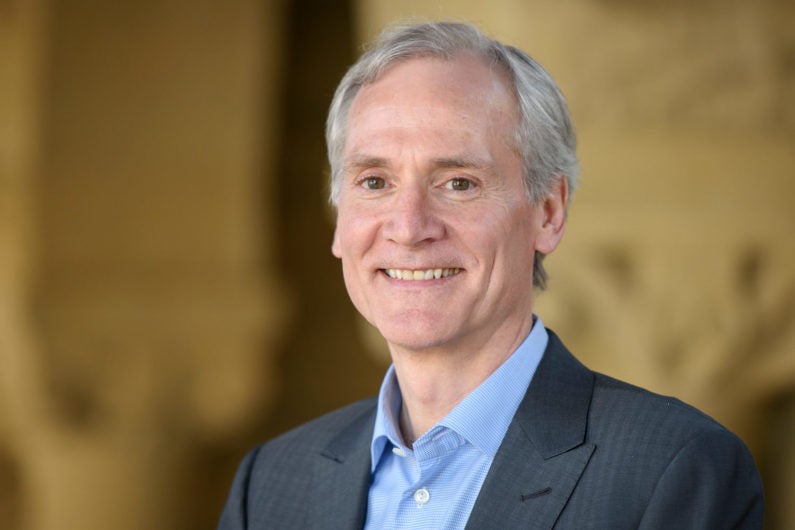Stanford president elected to American Philosophical Society
Stanford President Marc Tessier-Lavigne, a neuroscientist who studied philosophy as a Rhodes scholar at Oxford University, is among 32 scholars and leaders worldwide to be elected this year to the American Philosophical Society.
Stanford President Marc Tessier-Lavigne has been elected to the American Philosophical Society, the oldest learned society in the United States.
Founded in 1743 by Benjamin Franklin, the American Philosophical Society provides a forum for the free exchange of ideas, supports research through grants and engages distinguished scientists, humanists, social scientists and leaders in civic and cultural affairs through its membership and interdisciplinary opportunities.
In addition to his dedication to science, Tessier-Lavigne has been a proponent of an interdisciplinary, humanistic education.
After getting his first bachelor’s degree in physics from McGill University, he studied philosophy as a Rhodes scholar at Oxford University. Tessier-Lavigne described that experience as incredibly meaningful and transformative.
“Physiology gave me my vocation as a neuroscientist and philosophy opened my mind and taught me how to think,” Tessier-Lavigne said during his “What Matters to Me and Why” talk in February. “It made me appreciate the importance of the humanities.”
Tessier-Lavigne was among 32 scholars and leaders worldwide to be elected this year to the society, which has 1,019 elected members, according to a press release from the society. Other members elected this year include former president Barack Obama; Mark Thompson, the New York Times Company’s president and chief executive officer; and professors across disciplines from Harvard University, the University of Chicago, the University of California, Berkeley, Princeton University and other institutions.
Tessier-Lavigne is known for his achievements as a pioneering neuroscientist. His research has focused on the causes and treatment of degenerative brain diseases such as Alzheimer’s and Parkinson’s, as well as on therapies for spinal cord injuries. His discoveries about the biology of the nervous system revealed how neural circuits in the brain form during embryonic development.
His work has earned him numerous awards, including election to the National Academy of Sciences, the National Academy of Medicine, the American Academy of Arts and Sciences and the American Association for the Advancement of Science.
Before becoming Stanford’s 11th president last fall, Tessier-Lavigne served as the president of The Rockefeller University, a premier biomedical research and graduate education institution in New York. He taught at Stanford as a professor of biological sciences from 2001 to 2005.
As president of Stanford, Tessier-Lavigne has made advancing the arts and humanities at Stanford, and strengthening the ties between scientific and humanistic disciplines, among his major priorities.
“I am deeply honored to be elected to the American Philosophical Society, which is a leading venue to bring together the arts, humanities, social sciences and sciences in service to our nation and to humanity,” Tessier-Lavigne said. “Stanford shares these same objectives, and participation in the society’s activities will enable me to better serve our efforts at Stanford.”

